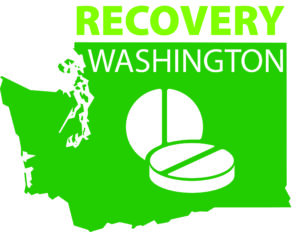 OLYMPIA – Republican proposals to tackle skyrocketing fentanyl usage and overdose deaths in Washington state are funded in the operating budget passed by the Washington Senate Friday.
OLYMPIA – Republican proposals to tackle skyrocketing fentanyl usage and overdose deaths in Washington state are funded in the operating budget passed by the Washington Senate Friday.
The $71.6 billion budget bill contains funding for local law enforcement task forces, a public education campaign focused on opioids and tribal opioid prevention and recovery programs. The measures are key elements of the Recovery Washington package unveiled by Senate Republicans in January.
The Senate passed the budget measure Friday as lawmakers continued their march to adjournment of the 2024 legislative session. Both chambers must negotiate and pass budget bills before the scheduled conclusion of the 60-day session on March 7. SB 5950 amends the two-year budget Washington lawmakers adopted in April 2023. The measure now moves to the House for further consideration.
Republican senators introduced the Recovery Washington bills this session to bring focus to the state’s fentanyl crisis. Federal statistics released this month showed Washington had the biggest year-over-year increase in deaths due to overdoses during the 12 months preceding September. Overdose deaths rose by more than 1,000, from 2,483 to 3,511. Washington ranked second nationally in the rate of growth, with a 41.4 percent increase, behind Oregon at 41.5 percent.
Recovery Washington proposals included in the Senate budget are:
- Funding for local law enforcement drug task forces. The Senate budget continues full funding for multi-agency drug task forces at $4 million annually to fight drug trafficking and local distribution networks. The Inslee administration had planned a cutback to $2.7 million. The full-funding proposal originated in Senate Bill 6134, sponsored by Sen. Chris Gildon, R-Puyallup, which did not advance.
“Until we reduce the supply of illicit drugs on our streets, we are going to have to deal with the terrible consequences of addiction,” Gildon said.
- A public awareness campaign to provide information about the dangers of methamphetamines and opioids, under the direction of the state Department of Health. The budget provides $2.6 million to fund Senate Bill 5906, sponsored by Sen. Lynda Wilson, R-Vancouver. The ‘One Pill Kills’ campaign she proposes would provide information about drug addiction, treatment programs, and state laws providing immunity for those who seek assistance in overdose cases.
“This is one way we can address this crisis, by educating kids and adults about the dangers inherent in illicit opioid use,” Wilson said. The program would underscore the point that pills sold on the street are generally counterfeit products using fentanyl as their active ingredient, and that a single dose can be deadly.
- State assistance for tribal programs to combat fentanyl and synthetic opioid abuse. The Senate budget provides funding to implement SB 6099, creating a Tribal Opioid Prevention and Treatment Account. The measure, sponsored by Senate Republican Leader John Braun, R-Centralia, earmarks at least 20 percent of state opioid settlement funds for Native American tribal programs. Funding comes from Washington’s share of a national settlement with opioid manufacturers.
Braun noted Native American tribes have been hit harder than any other racial or ethnic group in the state. “This will help support the important work tribes are doing within their own communities,” he said. “Our Native American tribes are disproportionately affected by substance abuse issues. They are taking a very proactive approach, and I am glad the state can help step up and participate in this effort.”
The budget follows through on the bill’s promise by allocating $15.4 million for tribes and urban Indian health programs. Money must be used for prevention, outreach, treatment, recovery support services, and other strategies to address opioid abuse. Braun noted tribal treatment and recovery facilities typically extend services to non-tribal members, providing an important resource for their communities. In addition, the budget earmarks funding for specific tribal programs, including a tribal opioid education program and an annual tribal fentanyl summit.










